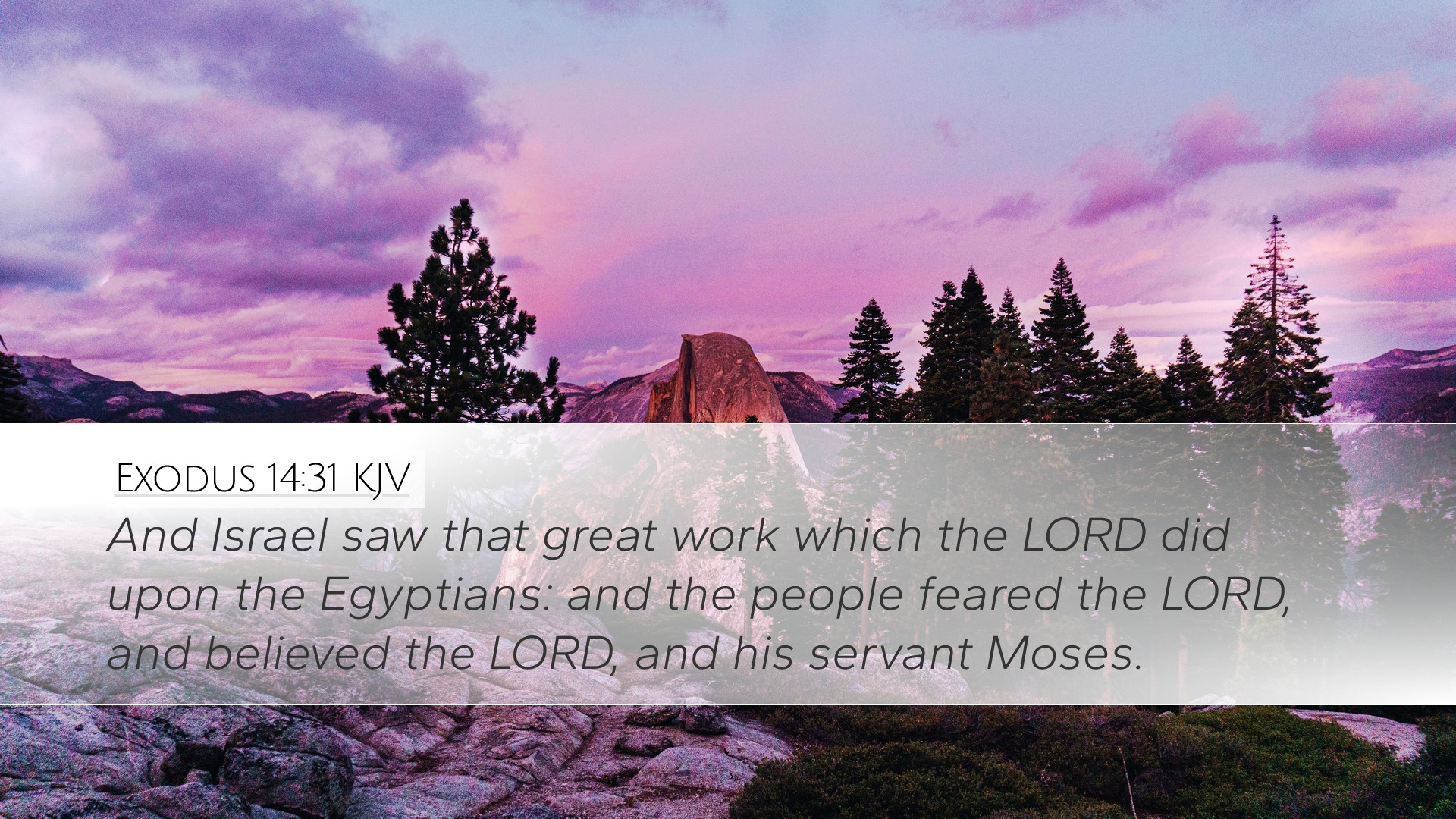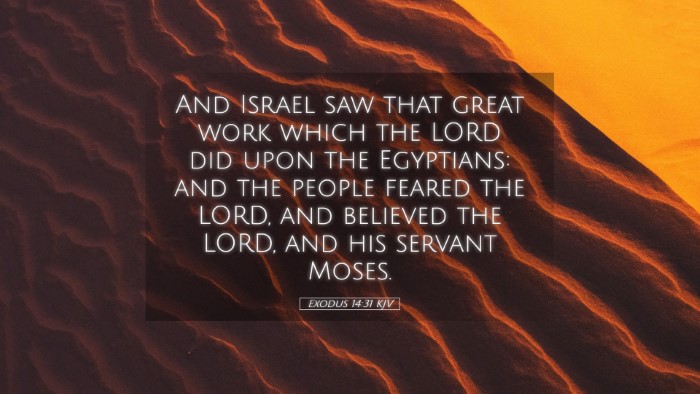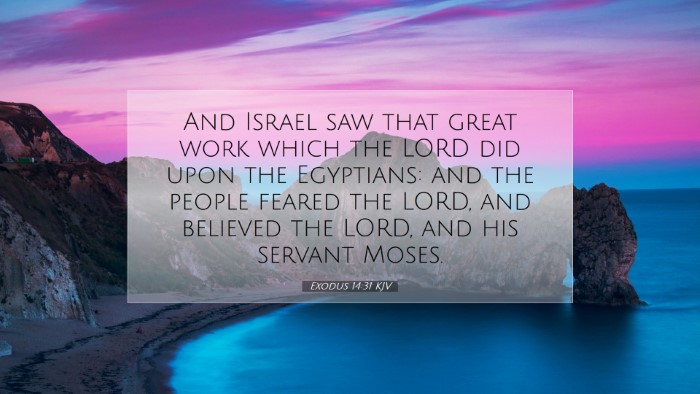Commentary on Exodus 14:31
Bible Verse: "And Israel saw that great work which the LORD did upon the Egyptians: and the people feared the LORD, and believed the LORD, and his servant Moses."
Introduction
This verse encapsulates a pivotal moment in the Exodus narrative, highlighting both a divine revelation and the human response to it. The miraculous deliverance of Israel from Egyptian oppression not only illustrates God’s power but also serves as a catalyst for faith within the Israelite community.
Insights from Matthew Henry
Matthew Henry emphasizes the significance of the "great work" performed by God. He notes that this work was not merely a display of power but also an active engagement in rescuing His people from slavery. Henry argues that this divine intervention was crucial for the Israelites to recognize God's supremacy over their oppressors. The act of crossing the Red Sea marked a transformational moment in Israel’s collective identity.
- The Fear of the Lord: Henry points out that the fear mentioned here is akin to reverence and awe. It was born out of witnessing God's mighty acts and serves as the beginning of wisdom (Psalm 111:10).
- Belief in the Lord: The response of the people, believing in the Lord, signifies a turning point in their faith journey. This belief is set not only on God's past actions but also on the promises made through Moses.
- Moses as God’s Servant: The reference to Moses highlights his role as intercessor and leader, reflecting the importance of godly leaders in guiding the people towards faith and obedience.
Insights from Albert Barnes
Albert Barnes adds depth by analyzing the implications of Israel’s recognition of the "great work." He posits that this acknowledgement was crucial for the establishment of faith and worship among the Israelites. Barnes highlights the chronological process of fear leading to faith, explaining how awe for God naturally progresses into trust in Him.
- Historical Context: Barnes gives attention to the historical backdrop of this moment, emphasizing that the Israelites had long been under the oppressive hand of Pharaoh, and their deliverance was not only miraculous but critical for their national identity.
- The Role of Witness: He suggests that witnessing divine acts fosters faith within a community. The shared experience of salvation acted as a foundational element for Israel's future as a nation.
- Lifelong Consequences: Barnes warns that such moments of divine revelation demand a lifelong commitment to faithfulness and devotion, encouraging readers to reflect on their own spiritual journeys.
Insights from Adam Clarke
Adam Clarke provides a thoughtful interpretation, focusing on the emotional and spiritual dimensions of this encounter. Clarke argues that the collective fear and belief resulted in an awakening of spiritual consciousness among the Israelites.
- The Nature of Fear: Clarke distinguishes between a servile fear of punishment and a filial fear that arises from love and reverence for God. In this case, the fear is rooted in a newfound respect for God’s holiness and justice.
- Faith Development: Clarke stresses that belief in the Lord and His servant Moses indicates a deepening relationship and trust. It is a pivotal shift from their previous skepticism and bondage mentality.
- Implications for Worship: The response of the people alludes to the importance of worship in acknowledging God's greatness. This incident set the stage for Israel’s worship practices and adherence to the Law.
Theological Reflection
This verse serves as a microcosm of the journey of faith experienced by the Israelites, as well as a model for contemporary believers. The elements of fear, faith, and acknowledgment of divine intervention provide vital insights applicable in modern spiritual contexts.
- Understanding God’s Powerful Acts: Just as the Israelites saw God's work, today's believers are called to recognize and reflect on the ways God acts within their lives.
- The Journey from Fear to Faith: The transition from fear to faith mirrors the struggles many face in their relationship with God, suggesting that fear can be a precursor to sincere faith.
- Role of Spiritual Leadership: The importance of godly leadership, as exhibited through Moses, underscores the need for strong spiritual guides who can direct congregations towards deeper faith.
Conclusion
Exodus 14:31 is a testament to God's faithfulness and the powerful transformation it brings to His people. The multifaceted reactions of fear, belief, and acknowledgment of Moses' leadership offer rich insights into the nature of faith and the foundational experiences that shape a community of believers. As pastors, theologians, and scholars study this verse, they are invited to examine their own faith journeys and the profound ways God continues to reveal Himself.


